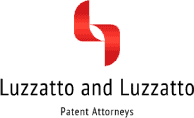


Substantive legislative changes have opened the door to the parallel importation of pharmaceuticals in Israel. Parallel importation cannot be prohibited, unless the goods undergo substantial changes such that they can no longer be attributed to the mark owner.
Clearance
When a pharmaceutical company chooses a trademark for a new drug, it should conduct a search in the Trademark Register before using the mark or filing a trademark application with the Trademark Office. The search is intended to determine whether there are prior registrations or applications for trademarks that are confusingly similar to the proposed mark and which cover identical goods or goods of the same description as the requested goods. In such case the trademark may not be registered and the use of the mark may infringe the rights of third parties.
Common law searches for unregistered marks in databases are not available in Israel. However, it is possible to search the online database of the Israeli Drugs Registry (at www.health.gov.il) or a trade guide (eg, Medic) to determine the names of drugs that are in use in Israel. These may constitute an obstacle to the registration and use of the proposed mark.
List of goods
An application for the registration of a pharmaceutical trademark may be filed
with the Trademark Office for the full list of goods in Class 5 of the Nice Classification. However, examiners routinely request that the list of goods be limited to those for which the mark is intended to be used.
The Trademark Office will usually accept a trademark application for a broad list of goods in Class 5 if the mark:
- Is a house mark
- Is intended to be used for a wide variety of Class 5 goods.
Pharmaceutical companies often file trademark applications for a broad list of goods, since at the time of filing the preparations for which the mark is intended to be used are still under development. According to Trademark Office guidelines (Circular MN 39), if the applicant submits an affidavit declaring that the preparations for which the mark is intended to be used are still in the development stage, registration may be granted for a broad list of goods. However, registration of the mark is conditional on the applicant undertaking to limit the list of goods to the preparations for which the mark is actually intended within five years of the filing date.
Three-dimensional marks
Drugs companies may wish to register three-dimensional marks, such as the shape of a tablet or the packaging of a drug. Under the Trademarks Ordinance 1972 (New Version), a ‘mark’ may consist of, among other things, a three-dimensional sign.
In two decisions (Ein Gedi Cosmetics Ltd v The Registrar of Patents, Designs and Trademarks (Case CA 3776/06) and August Storck KG v Alfa Intuit Food Productions Ltd (Case CA 11487/03)), the Supreme Court has ruled that, in principle, a three-dimensional shape may be registered as a trademark. The court held that the shape of a product cannot be inherently distinctive, but may be eligible for registration if:
- It has acquired distinctiveness through use.
- It is capable of identifying the source of the goods.
The court also highlighted that a three-dimensional mark must not possess a functional or aesthetic value. The court did not decide whether the packaging of a product can be inherently distinctive. An applicant may thus have to prove that the packaging has acquired distinctiveness through use in order to register it as a trademark.
In practice, the examiner will reject applications for three-dimensional trademarks and refer the applicant’s response to the registrar of trademarks, who will give a decision based on the material on file. It is possible to request a hearing before the registrar to try to demonstrate that a mark is eligible for registration.
Parallel imports and repackaging Parallel imports are lawful under Israeli trademark law, as long as the goods were manufactured with the consent of the trademark owner (Supreme Court Case CA 471/70).
In 1999 and 2000 substantive legislative changes opened the door to the parallel importation of pharmaceuticals in Israel.
In 1999 the Knesset (Parliament) amended the Pharmacists Ordinance 1981 (New Version) to allow the parallel importation of pharmaceutical preparations registered in the Drugs Registry. In 2000 the minister of health established a regulatory regime for the approval of parallel imports by amending the Pharmacists Regulations [Preparations] 1986. These regulations specify, among other things, the various conditions for obtaining an import permit (eg, compliance with appropriate storage and shipment conditions).
According to Section 6(a) of the regulations, an import permit shall not be granted unless the following cumulative conditions are met:
- The preparations have been shipped to Israel by authorized traders from recognized countries (under the regulation, ‘recognized countries’ are Australia, Canada, the EU member states, Iceland, Israel, Japan, New Zealand, Norway, Switzerland and the United States).
- The preparations have been stored only in recognized countries.
Under Israeli trademark law, the parallel importation of pharmaceutical preparations cannot be prohibited, unless the preparations undergo substantial changes such that they can no longer be attributed to the trademark owner.
In a particular case, a district court ruled that the parallel importation of perfume bottles was lawful even though the defendants had removed the code attached to the bottom of the packaging and to the bottles themselves (Case TA 1171/97). The court concluded that the removal of the code did not mislead consumers as to the origin of the goods, since the original packaging of the goods and the goods themselves remained unchanged. Furthermore, the court highlighted that physical changes to a product do not necessarily result in trademark infringement. For example, appropriate repackaging will not be considered as trademark infringement. Although this case did not refer to pharmaceuticals, its principles are also applicable to these types of goods.
Anti-counterfeiting and enforcement
Seizure by Customs
Under the Agreement on Trade-Related Aspects of Intellectual Property Rights (TRIPs), Israel must prevent the trade in goods that infringe IP rights. Accordingly, the Customs Ordinance (New Version) was amended and Sections 200(a) to 200(e) were added.
Under these provisions, the owner of a trademark registered in Israel may petition Customs to seize a shipment of goods which are suspected of infringing its rights. The trademark owner must provide Customs with, among other things:
- A copy of the certificate of registration;
- A sample of its goods or a catalogue illustrating the goods; and
- An undertaking to indemnify the importer and Customs for any unjustified damages that may result from the seizure.
Customs authorities may also initiate the seizure of goods suspected to be counterfeit of their own accord. In such cases, Customs will notify the trademark owner’s agent and hold the goods for a period of three working days. This time limit may be extended by an additional period of three working days at the request of the trademark owner. Customs may provide photographs or samples of the goods. The trademark owner must deposit a bank guarantee in the amount determined by Customs within three working days. This time limit may be extended by an additional period of three working days. The bank guarantee is intended to cover any expenses relating to the seizure or to compensate Customs and the importer if the seizure is found to be unjustified. In addition, the trademark owner must file a civil claim against the importer within 10 working days. This time limit may be extended by an additional period of 10 working days. If the trademark owner fails to deposit a bank guarantee or file a civil claim within the appropriate deadlines, the goods will be released.
Where a small shipment is involved, Customs has discretion to apply another procedure. This procedure is more convenient for the trademark owner, since the burden to file a civil claim shifts to the importer. In this case, the trademark owner is not required to deposit a bank guarantee and file a civil claim. Instead, it must provide Customs with:
- A written opinion explaining why it believes that the goods are counterfeit.
- A written undertaking to compensate the importer for damages and to indemnify Customs if it is found that the seizure was unjustified.
- A written undertaking to be joined as co- defendant if the importer files a civil claim against Customs.
If the importer does not take legal action against Customs and/or the trademark owner, the goods will be destroyed.
Criminal proceedings
The importation of counterfeit pharmaceuticals is a criminal offence under the Trademarks Ordinance and the Merchandise Marks Ordinance. A police department specializing in the enforcement of IP rights was created to comply with the requirements of the TRIPs Agreement. The state can file an indictment against an infringer of trademark rights. In addition, the trademark owner may initiate criminal proceedings by filing a private complaint. In criminal proceedings, it is possible to obtain court orders for the search, seizure and destruction of the goods.
In several criminal cases, individuals who had imported and traded in counterfeit tablets bearing the VIAGRA and CIALIS marks have been convicted. For instance, in one particular case the state claimed that the defendant had imported 159,700 counterfeit Viagra tablets (Case 8842/04). The court convicted the defendant under, among other things, the Trademarks Ordinance and the Customs Ordinance. The defendant was sentenced to 15 months’ imprisonment, 12 months’ conditional imprisonment and a fine of IS70,000 (approximately $18,500).
Civil proceedings
The trading and importation of counterfeit pharmaceuticals may constitute an infringement of the pharmaceutical company’s rights under trademark law, the tort of passing off, unjust enrichment and consumer deception. The trademark owner may file a civil claim coupled with a motion for a preliminary injunction, including a quia timet injunction, as well as a petition for search and seizure.

Relevant Articles
Regarding Patent Term Extensions in Israel
